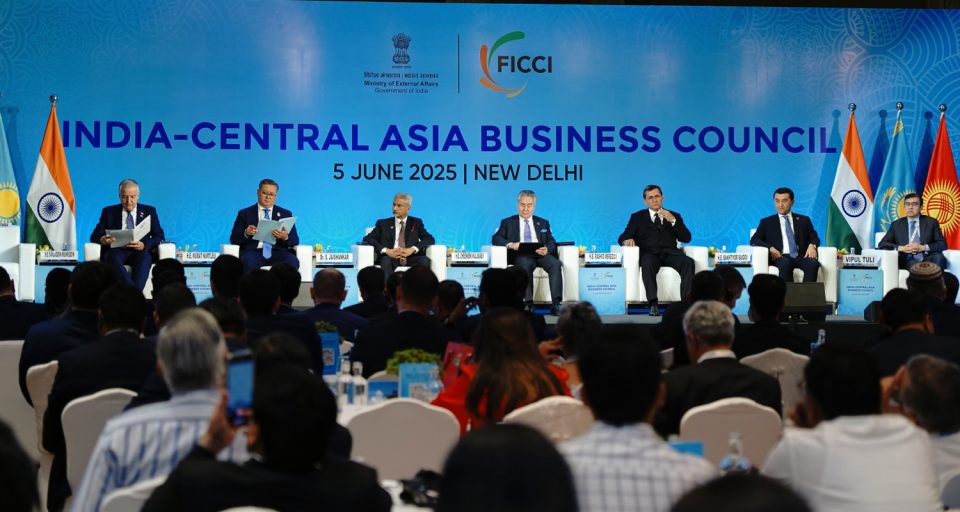On 5 June 2025, Foreign Minister of Turkmenistan Rashid Meredov participated in the Central Asia-India Business Council held in New Delhi.
During the event, participants exchanged views on key partnership issues in transport and logistics connectivity, the digital economy, and investment opportunities for joint projects and programs in these areas between Central Asian countries and India.
In his speech, Meredov emphasized that Turkmenistan attaches great importance to the activities of the Business Council. He also highlighted the significance of actively utilizing and expanding the frameworks and experience established through this council.
In the context of developing energy, transport, and logistics infrastructure in Central Asia, the importance of the flagship energy project, the Turkmenistan-Afghanistan-Pakistan-India (TAPI) gas pipeline, was noted.
Additionally, discussions took place regarding investment opportunities in joint transport and logistics projects aligned with initiatives to promote North-South transport and transit corridors.
The parties expressed interest in systematic cooperation with India in the field of innovation, particularly in high technologies, artificial intelligence, and the development of digital platforms.
Participants of the Business Council unanimously agreed that the outcomes of the meeting are intended to facilitate concrete results for the further development of mutually beneficial cooperation across a wide range of areas.
India-Central Asia Trade Relations: Progress and Potential
India’s Minister of External Affairs, Subrahmanyam Jaishankar, highlighted the remarkable growth in India’s trade and economic ties with Central Asia over the past decade during his remarks at India – Central Business Council.
In 2014, mutual trade was less than US $ 500 million, but now, the trade volume has surged to nearly US $ 2 billion. Despite this positive trend, the minister emphasized that this figure does not yet reflect the full potential of economic collaboration between India and Central Asian nations.
Jaishankar underscored the need to address this gap, particularly given the uncertainties in the international economy. He called for governments and businesses to work in tandem to unlock greater opportunities, noting, “This is why all of us are here in this room.”
The minister outlined three primary objectives to strengthen ties:
- Deepening Cooperation: Enhancing both the volume and quality of existing trade and economic interactions.
- Diversification of Trade: Expanding the range of goods and services exchanged.
- Sustainability and Predictability: Ensuring more stable and long-term economic engagements.
To achieve these goals, Jaishankar highlighted the importance of long-term contracts, cross-investments, and joint ventures. He pointed to key sectors for collaboration, stating, “Whether we are talking uranium, crude oil, potentially gas, mining, coal, or fertilizers, these are all relevant examples to reach really long-term understandings between us.”
To realize the full potential of India-Central Asia relations, Jaishankar proposed five targeted solutions:
- Digital Economy & Innovation: India is eager to partner with Central Asian nations on platforms like UPI, Aadhaar, and DigiLocker. Greater use of digital technologies and AI applications can unlock new avenues for trade and economic growth.
- Financial Services: Progress has been made with the opening of Special Rupee Vostro Accounts in Indian banks by Central Asian counterparts, alongside discussions on adopting UPI for seamless transactions.
- Healthcare & Pharma: Pharmaceuticals remain a key export for India to Central Asia. Strengthening cooperation, especially between drug regulators, is critical to boosting this sector.
- Improving Connectivity: Increased resources and effort in the International North-South Transport Corridor (INSTC) and greater utilization of Chabahar port will enhance trade logistics.
- Streamlining Transit Procedures: Simplifying customs processes through tools like the TIR Carnet will ease the cross-border flow of goods.
In addition to these solutions, Jaishankar called for tapping the economic and business potential of sectors such as tourism, education, films, and cultural exchanges. These areas promise to deepen ties and foster mutual growth.

